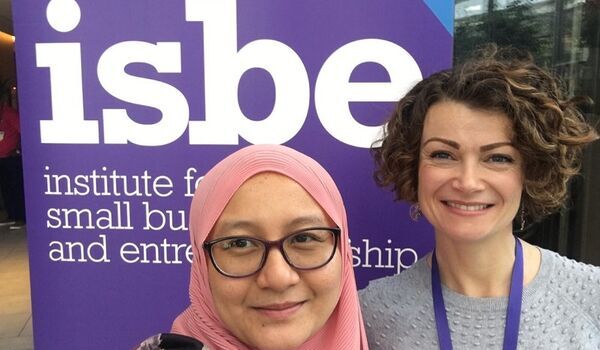A gap between research and practice - Is it simply a question of means and methods?
- Centre for Enterprise and Entrepreneurship Studies

What impact does your research have?
In the UK, academics are certainly being encouraged to consider, and prioritise, the (positive!) impact of their research. This is as true for us, chairing a Practice & Impact Special Interest Group, as it is for other UK academics. And in the case of entrepreneurship research, where significant discussion is occurring around the ‘practical’ outcomes that can arise as a result of our research, there is perhaps an inherent requirement and urgency to consider the value and impact of entrepreneurship research.
To that end then, where are the academic and practitioner entrepreneurship community on this journey? To better understand this question, the Practice & Impact SIG of the Institute for Small Business and Entrepreneurship (ISBE) hosted a day of events examining these issues at the most recent conference held in Newcastle on 14-15 November. Specifically, we hosted a panel event with members invited from policy, practice and research (including Newcastle University and Research Retold) to examine the statement: “Scholars don’t know about entrepreneurship; entrepreneurs do”. Panel presentations and subsequent discussions led to many useful insights and ‘top tips’ that we’ve summarised below.
First and foremost, the panel identified that the core distinction between different communities, (research, practice and policy), is a question of means and methods. This is neatly summarised in the following idea that individual practitioners know how they do what they do, but the value that an academic brings is a meta-level perspective giving insights into how many entrepreneurs have approached a particular aspect of entrepreneurial activity.
Further, panel members identified dichotomies in language, roles and purpose, and across several areas of interest which are summarised below:
|
Entrepreneurs |
Scholars |
|
Know their business |
Know the process |
|
Understand their markets |
Understand markets |
|
Solve problems |
Suggest solutions |
|
Know specific details |
Make ‘higher level’ observations |
|
Do |
Explain |
So how might we engage different parties? Here are six key considerations based on the contributions of panel and audience members:
- It’s not all about research. Relationship building is required and there is much complexity in the journey. A first meeting requires clarity that can create a foundation that balances the needs of both parties.
- Be motivated and passionate – and communicate this to practitioners! Have a hook that gets the ball rolling and builds a trusted relationship. Further, be clear on selling the (potential) benefits versus selling the research. (Warning: do not oversell as this leads to disappointment for both sides. It’s always better to undersell and over-perform.)
- Build credibility as an academic who knows how to work with practitioners. Start small, be consistent and care about the actions taken and outcomes achieved. The more people hear about you, the easier it will be to convince others to collaborate.
- Be clear on roles and requirements – negotiate these roles early in the relationship. This will help to address concerns and the differences between academic research and practice.
- Translation and selectivity are required. As an academic it is tempting to try to consider all the information we have at our disposal; it is better to be selective and consider what is really relevant to the practitioners you are working with.
- Finally, when negotiating initial (or on-going) access try to focus on in-kind contributions, such as hosting meetings or being willing to share your research at events. Everybody is short of cash, and building a relationship is about what you are willing to put on the table beyond cash.
From our events we conclude that there is significant good-will and energy regarding engagement between and across different communities that create and use research. For the academic community, it seems it’s a question of “Go Do” – go out and engage with new audiences for your research and build strong relationships so that your valuable research can have (positive) impact and reach its fullest potential. And in the case of practitioners and policymakers, whilst academics may tend towards the esoteric, there is value in engaging with academic research, as it has the potential to make a positive impact on business and policy.
Contact us
If you would like to get in touch regarding any of these blog entries, or are interested in contributing to the blog, please contact:
Email: research.lubs@leeds.ac.ukPhone: +44 (0)113 343 8754
Click here to view our privacy statement. You can repost this blog article, following the terms listed under the Creative Commons Attribution-NonCommercial-NoDerivatives 4.0 International licence.
The views expressed in this article are those of the author and may not reflect the views of Leeds University Business School or the University of Leeds.

